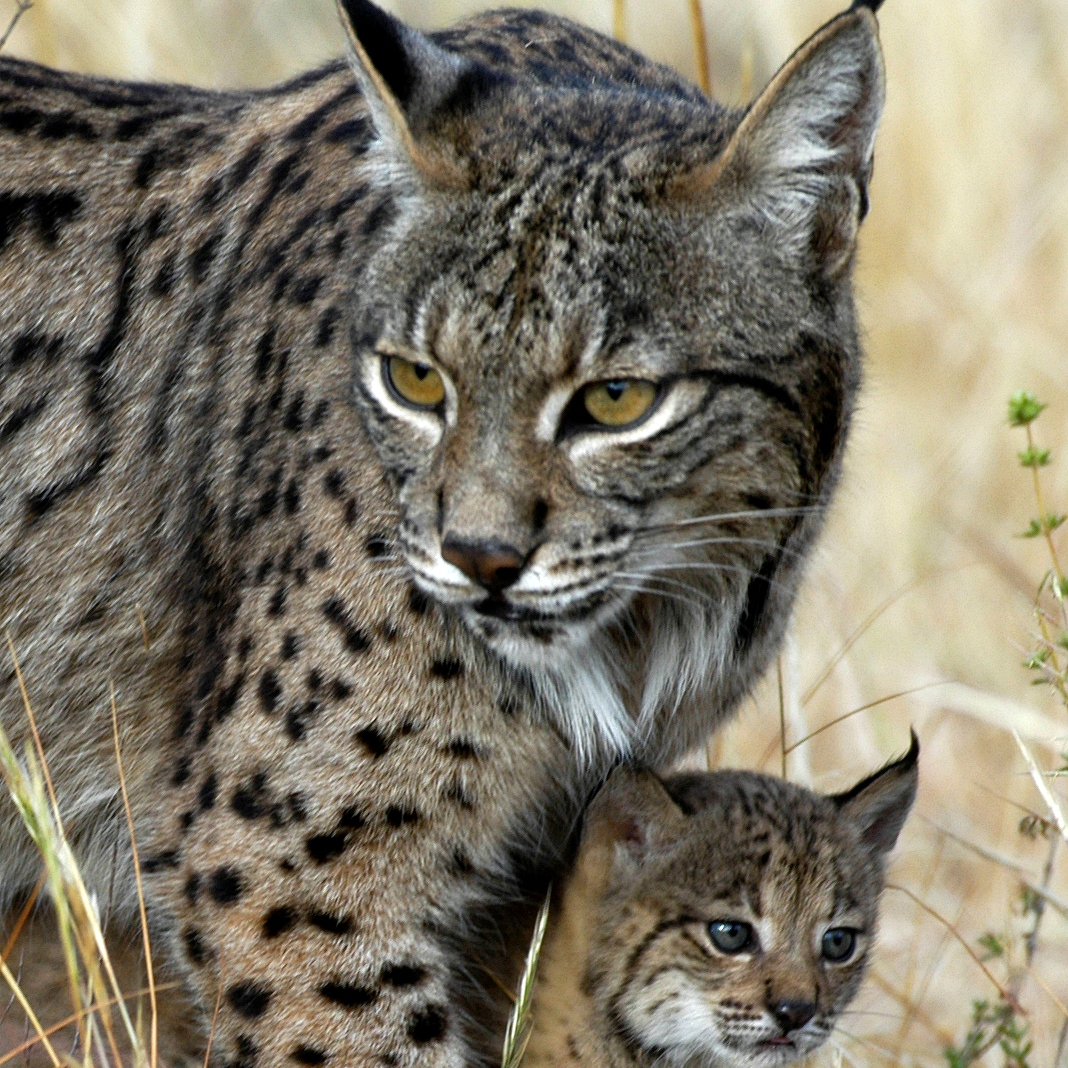Bleak future for Mediterranean mammals – IUCN
The latest assessment of Mediterranean mammals shows that one in six is threatened with extinction at a regional level, according to the IUCN Red List of Threatened Species™.

Photo: Programa de Conservacion Ex Situ del Lince Iberico
The study, which assesses the status of 320 mammals in the region, except whales and dolphins, finds three percent are Critically Endangered, five percent are Endangered and eight percent are Vulnerable.
A further eight percent are Near Threatened, and three percent are Extinct or Regionally Extinct. This is the first time all Mediterranean mammals have been assessed for the IUCN Red List.
“The number one threat is habitat destruction, which affects 90 percent of the threatened species,” says IUCN’s Annabelle Cuttelod, co-author of the report. “We need international action to protect key areas and preserve natural habitats to ensure we don’t lose the rich biodiversity in this area.”
Rodents, bats, shrews, hedgehogs and moles, which make up the majority of Mediterranean mammals, are finding it increasingly hard to survive due to loss and degradation of their habitat from agriculture, pollution, climate change and urbanization, the study shows.
Large herbivores, such as deer, carnivores, and rabbits and hares are particularly threatened. Eight species from these groups have already gone extinct in the Mediterranean region, including the Mesopotamian Fallow Deer (Dama mesopotamica) and the Common Hippopotamus (Hippopotamus amphibius).
The Mediterranean Monk Seal (Monachus monachus) and the Iberian Lynx (Lynx pardinus) are both Critically Endangered. The IUCN World Conservation Congress, held in Barcelona last October, called for international action to preserve their natural habitats.
Agriculture affects 65 percent of threatened mammals, hunting and trapping 60 percent, and invasive species 50 percent. Overall, more than one-quarter (27 percent) of Mediterranean mammals have declining populations, 31 percent are stable, while for a further 40 percent the population trend is unknown. Only three percent of species populations are increasing, often due to conservation action, according to the study.
Mammal biodiversity is greatest in mountainous parts of the region, with particularly high concentrations of threatened species found in the mountains of Turkey, the Levant, and north-west Africa. Although the Sahara has relatively low species richness, a high proportion of Saharan species are threatened.
Of the 49 threatened mammal species, 20 are unique to the region and occur nowhere else in the world, highlighting the responsibility that Mediterranean countries have to protect the entire global populations of these species.
“To ensure the survival of large herbivore and carnivore mammals in the Mediterranean, we have to restore habitats and food chains,” says Helen Temple, co-author of the study. “We need to encourage people to accept large predators, improve protected areas management and better enforce laws regarding hunting practices.”
Read the full report at: https://www.iucn.org/dbtw-wpd/edocs/2009-027.pdf
For more information or to set up interviews, please contact:
- Sonsoles San Román, IUCN-Med Communication Officer, Centre for Mediterranean Cooperation, t +34 952 028430, e sonsoles.sanroman@iucn.org, w https://www.iucn.org/mediterranean
- Sarah Horsley, IUCN Media Relations Officer, t +41 22 999 0127, m +41 79 528 3486, e sarah.horsley@iucn.org
Notes to editors
- Mammal species also include many familiar domesticated species and pets such as cats or dogs. Domesticated species are not eligible for classification according to the IUCN Red List Categories and Criteria, and were excluded from the assessment.
- The Mediterranean mammal assessment was made possible by more than 250 mammal experts from many different countries in the Mediterranean region and elsewhere, who generously gave of their time and knowledge.
- The Mediterranean region was defined politically to include the following countries: Albania, Algeria, Andorra, Bosnia and Herzegovina, Bulgaria, Croatia, Cyprus, Egypt, France, Greece, Israel, Italy, Jordan, Lebanon, Libyan Arab Jamahiriya, FYR Macedonia, Malta, Monaco, Montenegro, Morocco, occupied Palestinian Territories, Portugal (including Madeira), San Marino, Serbia, Slovenia, Spain (including the Canary Islands), Switzerland, Syrian Arab Republic, Tunisia, Turkey and Western Sahara.
About The IUCN Red List of Threatened Species™
The IUCN Red List of Threatened Species™ is the most comprehensive conservation inventory of the world’s plant and animal species and a widely used tool for focusing attention on species of conservation concern. The assessments evaluate the conservation status of individual species, identify threatening processes affecting them and, if necessary, propose recovery objectives for their populations.
The IUCN Red List threat categories are the following, in descending order of threat:
- Extinct or Extinct in the Wild
- Critically Endangered, Endangered and Vulnerable: species threatened with extinction
- Near Threatened: species close to the threatened thresholds
- Least Concern: species evaluated with a low risk of extinction
- Data Deficient: no evaluation because of insufficient data
Species classified as Vulnerable, Endangered or Critically Endangered are considered Threatened
Click on the photos below for high resolution versions. Please note these photos may only be reproduced in connection with a story on this press release.



